
Nightmares are a common theme in those diagnosed with PTSD. When asked about how he would explain PTSD in his own words, Abe replied:
"People ask me, 'When were you in Vietnam?'
When was I in Vietnam? I was there last night. I was there this morning. Five minute ago before you asked me. And I will probably go back tonight."
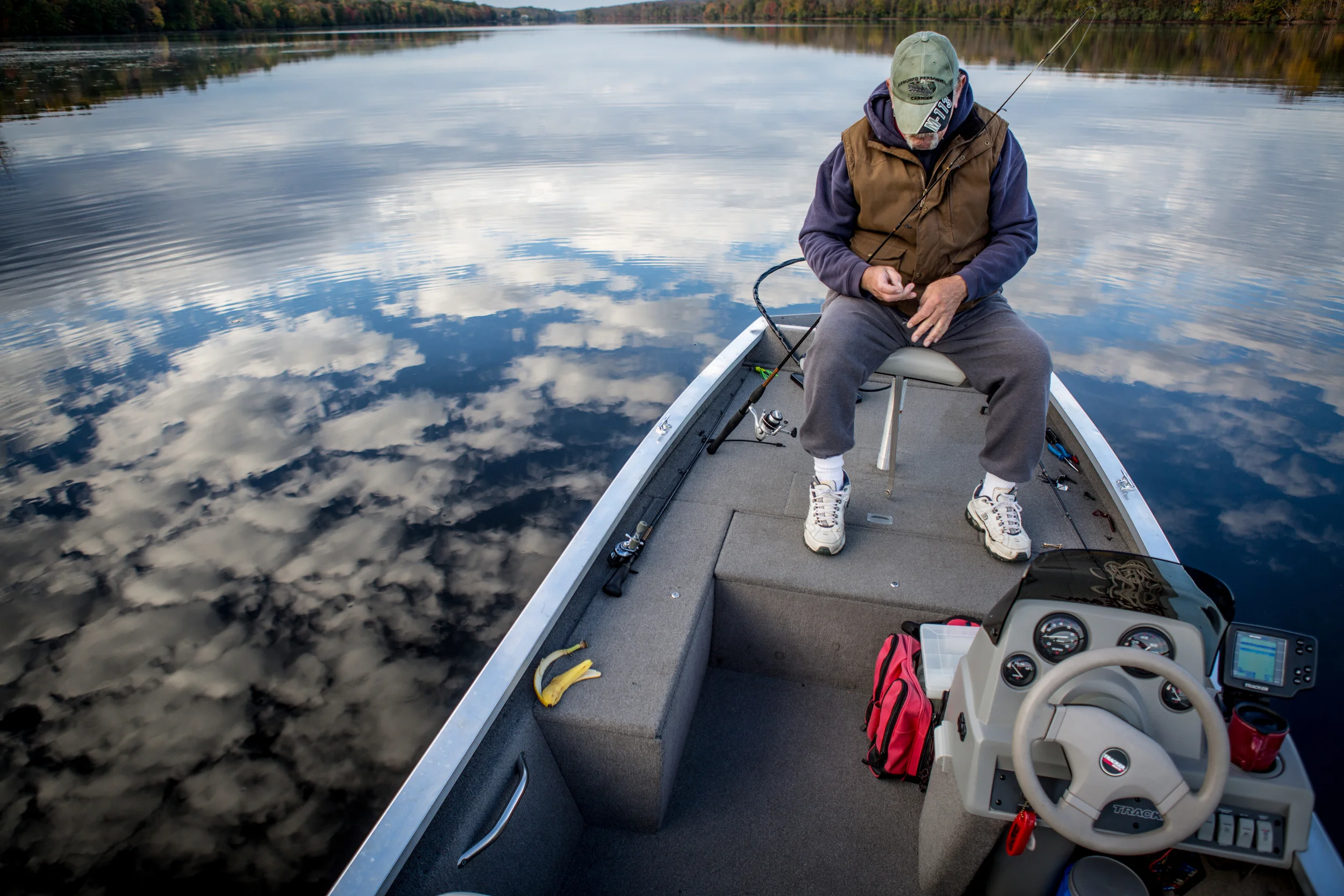
Tom Frame fishes as one way to escape his PTSD. The peaceful hobby allows him to focus on one thing and keeps his mind from wandering.

Gary Young won’t quit smoking despite his wife and daughter’s opposition to it. Stubbornness and addiction are common in veterans who live with PTSD.
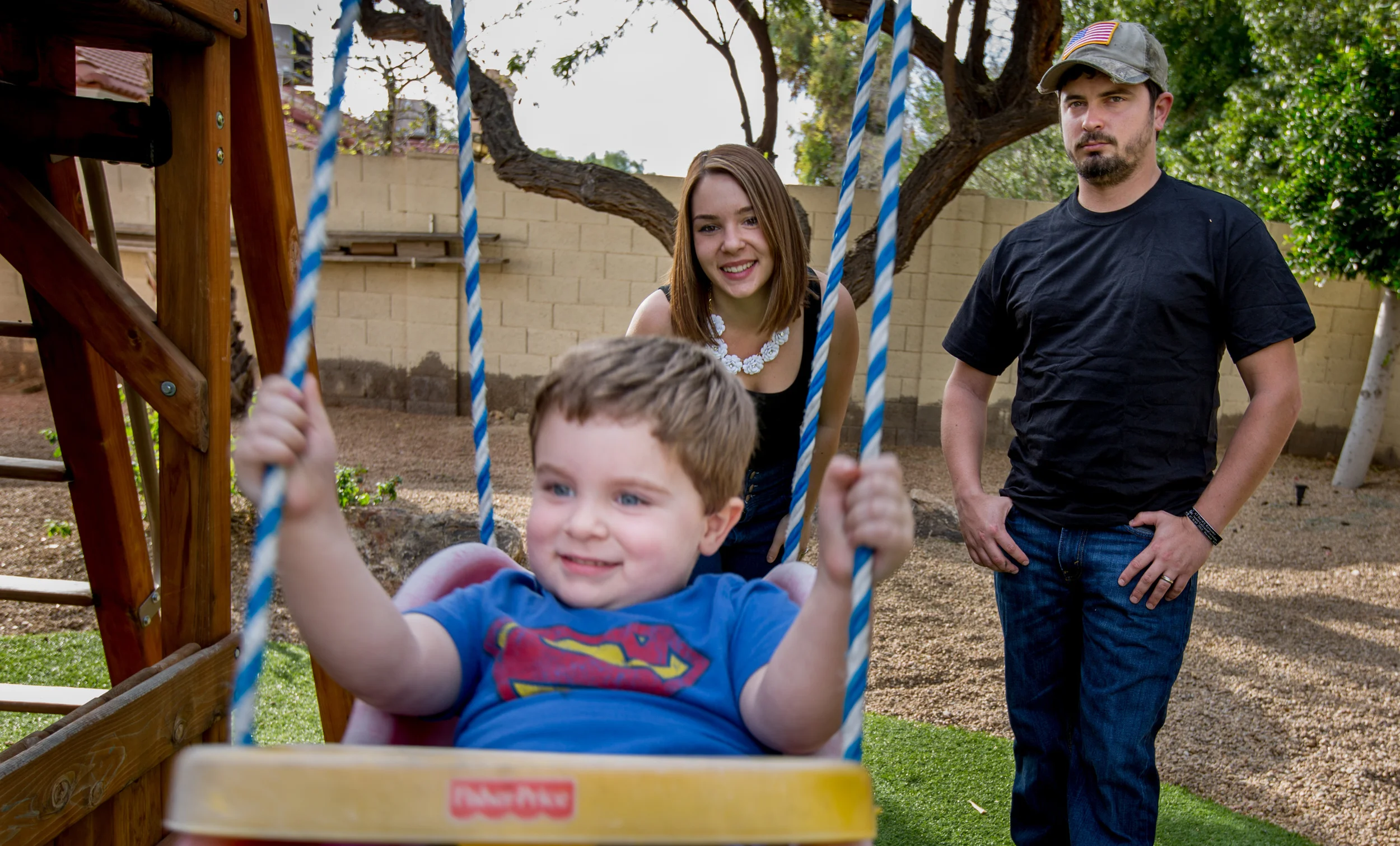
In a collaborative photograph, Josh Quigg creates an image that describes what it means to live with PTSD. He wants to be there for his family, but sometimes the PTSD pulls him back to Afghanistan. (Photo by Kara Frame and Joshua Quigg)
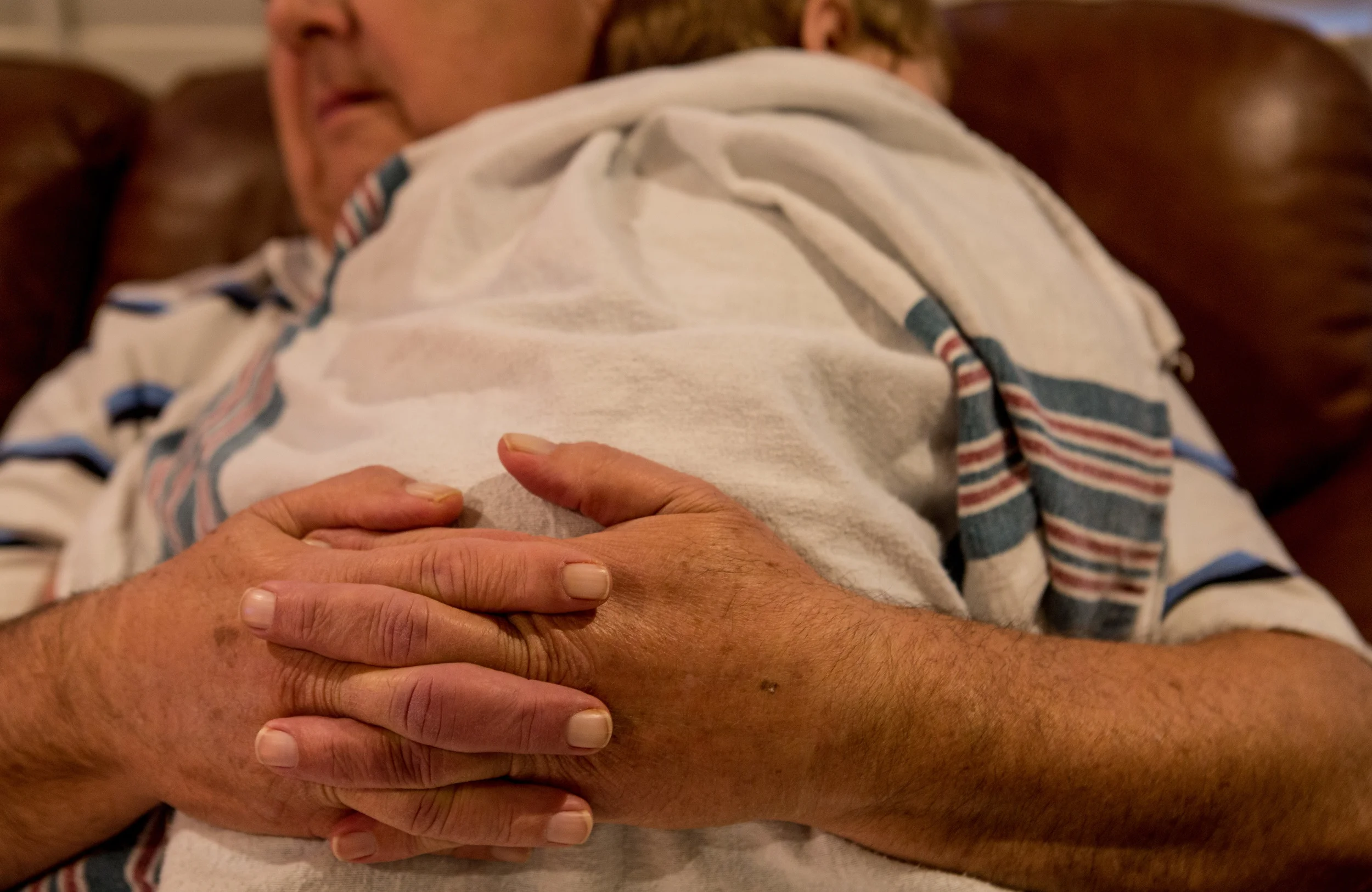
Gary Young holds his youngest grandson, Ethan. His wife, Betty, explains that it’s his grandbabies that bring the most joy to Gary and helps him avoid his PTSD.
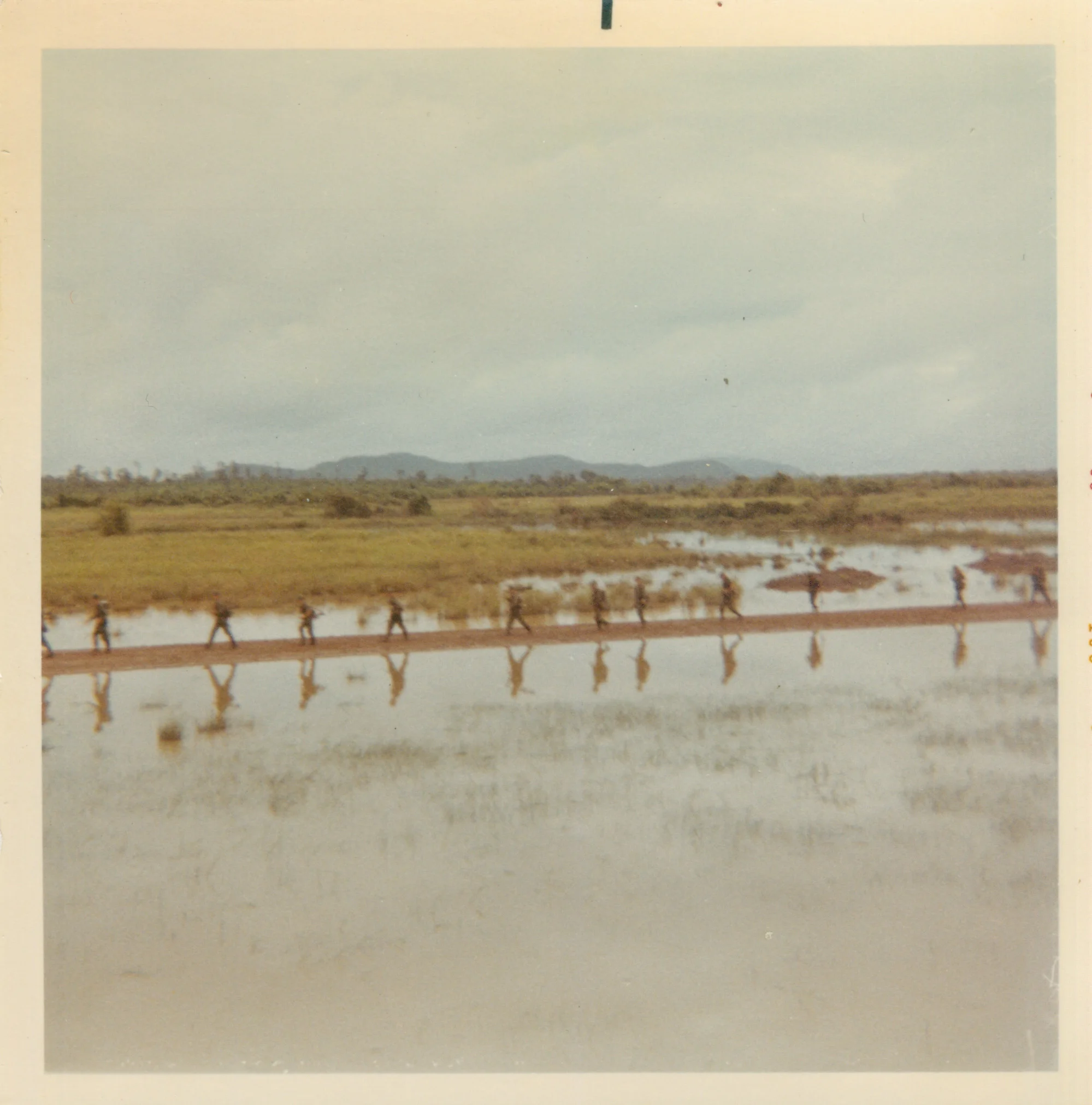
The 1st/5th Mechanized Infantry Unit walk North out of Dau Tieng, Vietnam in the summer of 1968. On August 21st, the unit was ambushed and they lost 17 men in the Battle of Ben Cui. (Photograph by Donald Elverd)
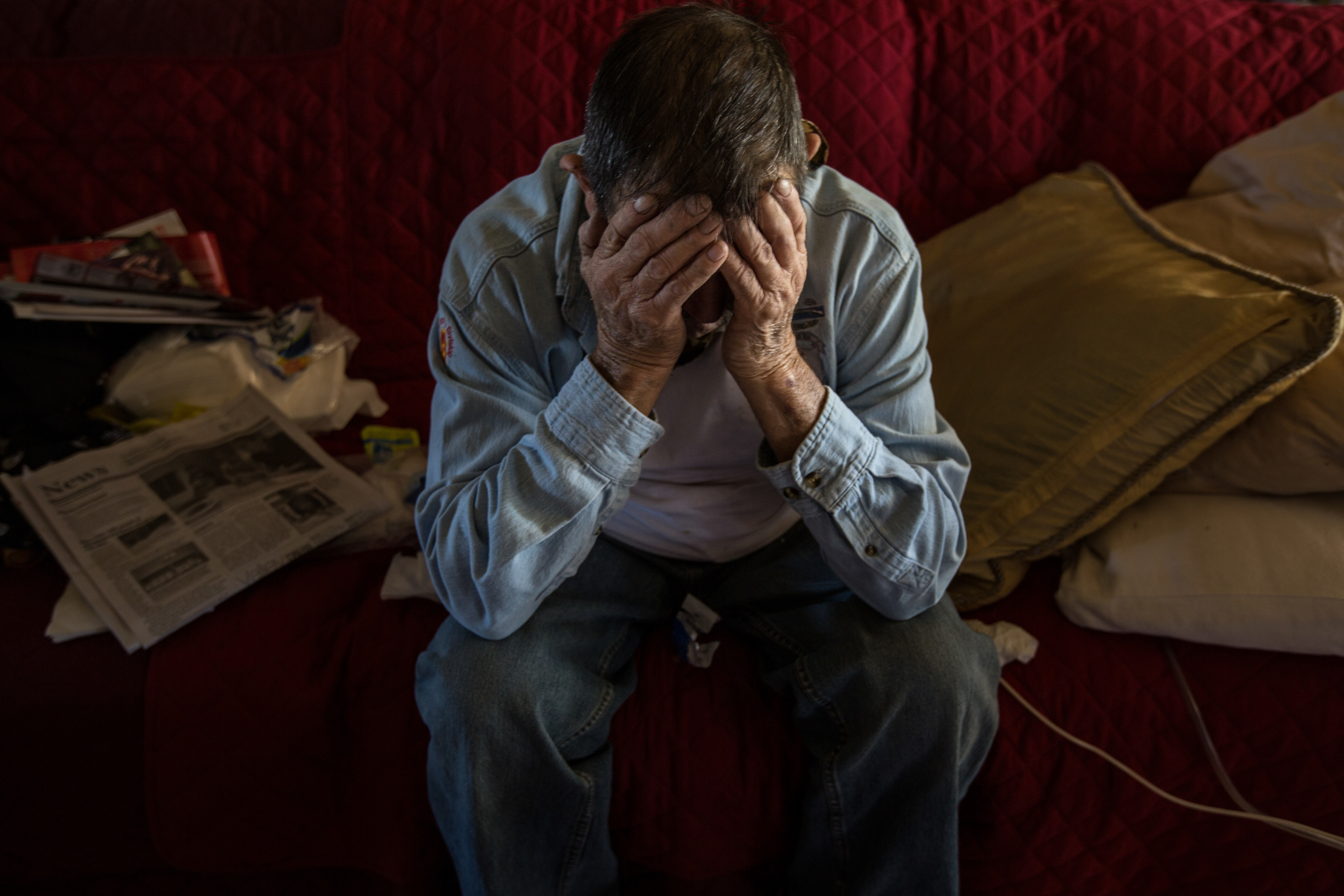
Abe Cardenas rests his head in his hands as he waits for his formula to drip down his feeding tube. It takes hours for him to get a full feeding, which he doesn’t always have time for. In addition to his PTSD, Abe suffered from throat and prostate cancer - both are connected to exposure to Agent Orange. To survive throat cancer, Abe received a tracheotomy which prevents him from eating with his family.


Josh Quigg was medically retired from the US Army after being deemed unfit to serve from his PTSD diagnosis. Plans of a life career in the Army were shattered, and the Quigg family moved back home into Julia’s parents house. They finally have a fresh start as they settle into a new home.

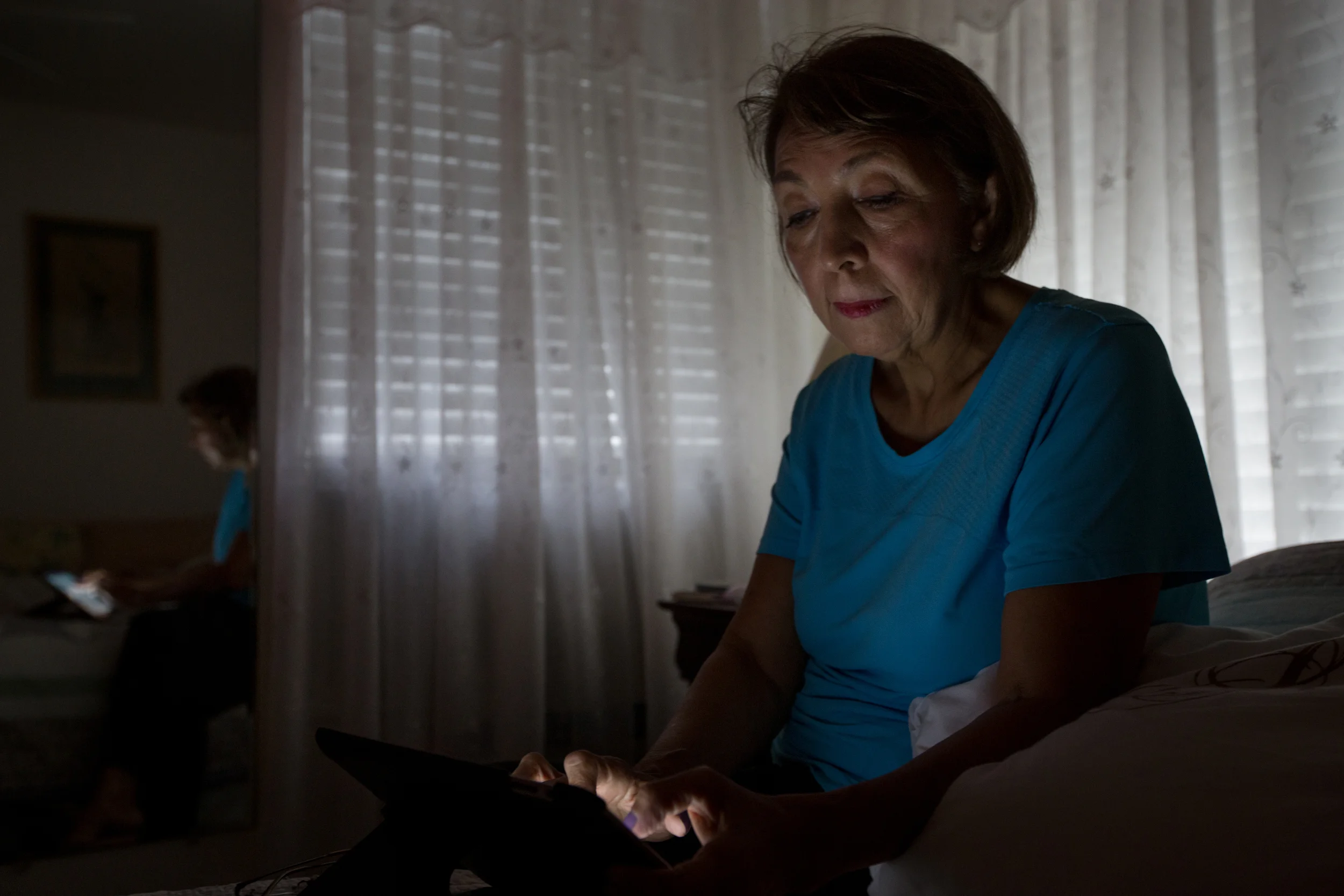
Betty Young says that in order to deal with Gary’s PTSD, she always stayed busy. She enjoys a quiet moment in her day after putting her one grandson to sleep and before leaving to pick the other one up from daycare.

The Quigg family notices a significant difference between who Josh was before he left for Afghanistan and who he is now. They miss his carefree attitude and smile.
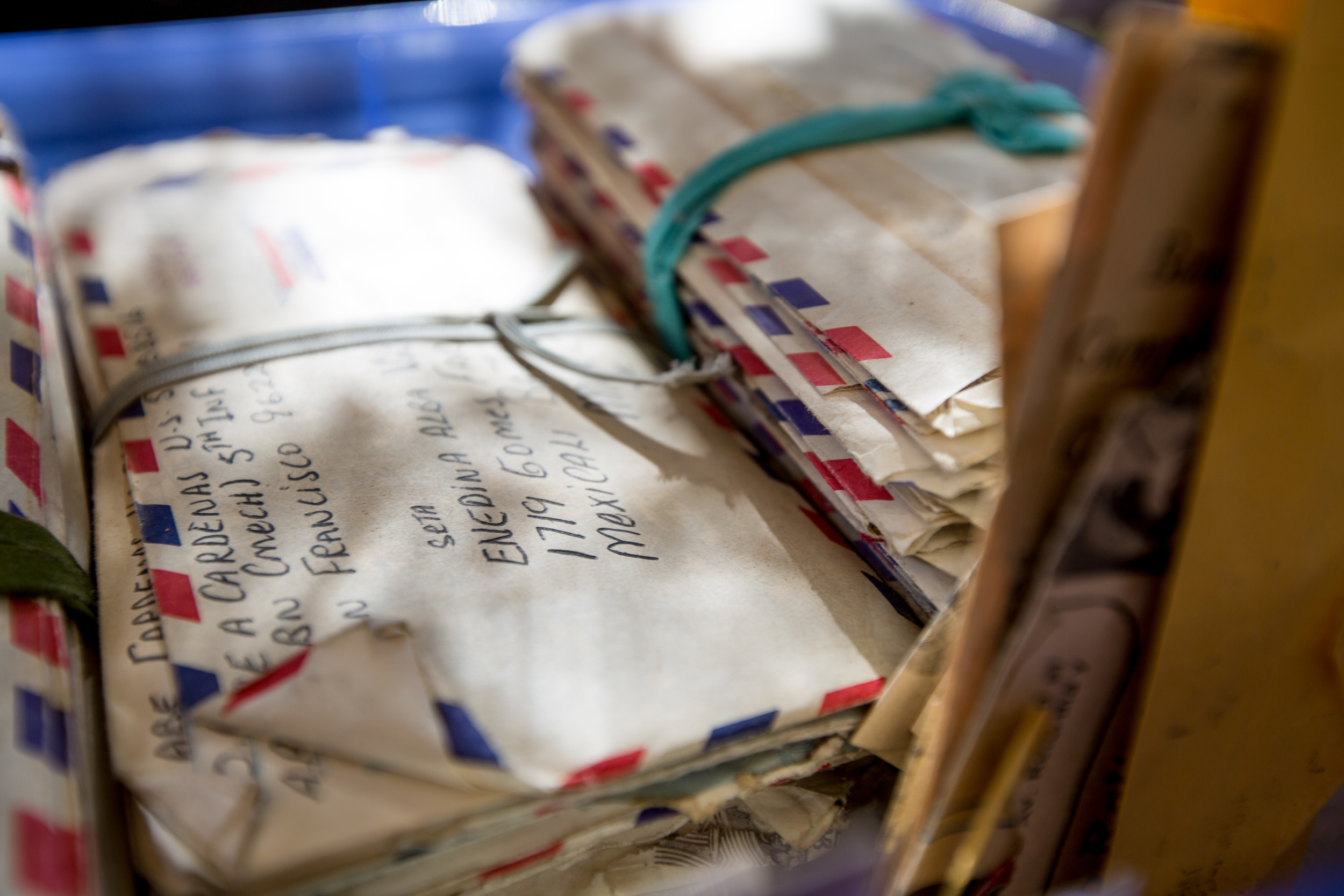
Abe and ChaCha Cardenas were engaged to be married when his draft notice arrived. Abe wrote to ChaCha constantly as she awaited his return. But when he came home PTSD, anger, and alcoholism came with him.

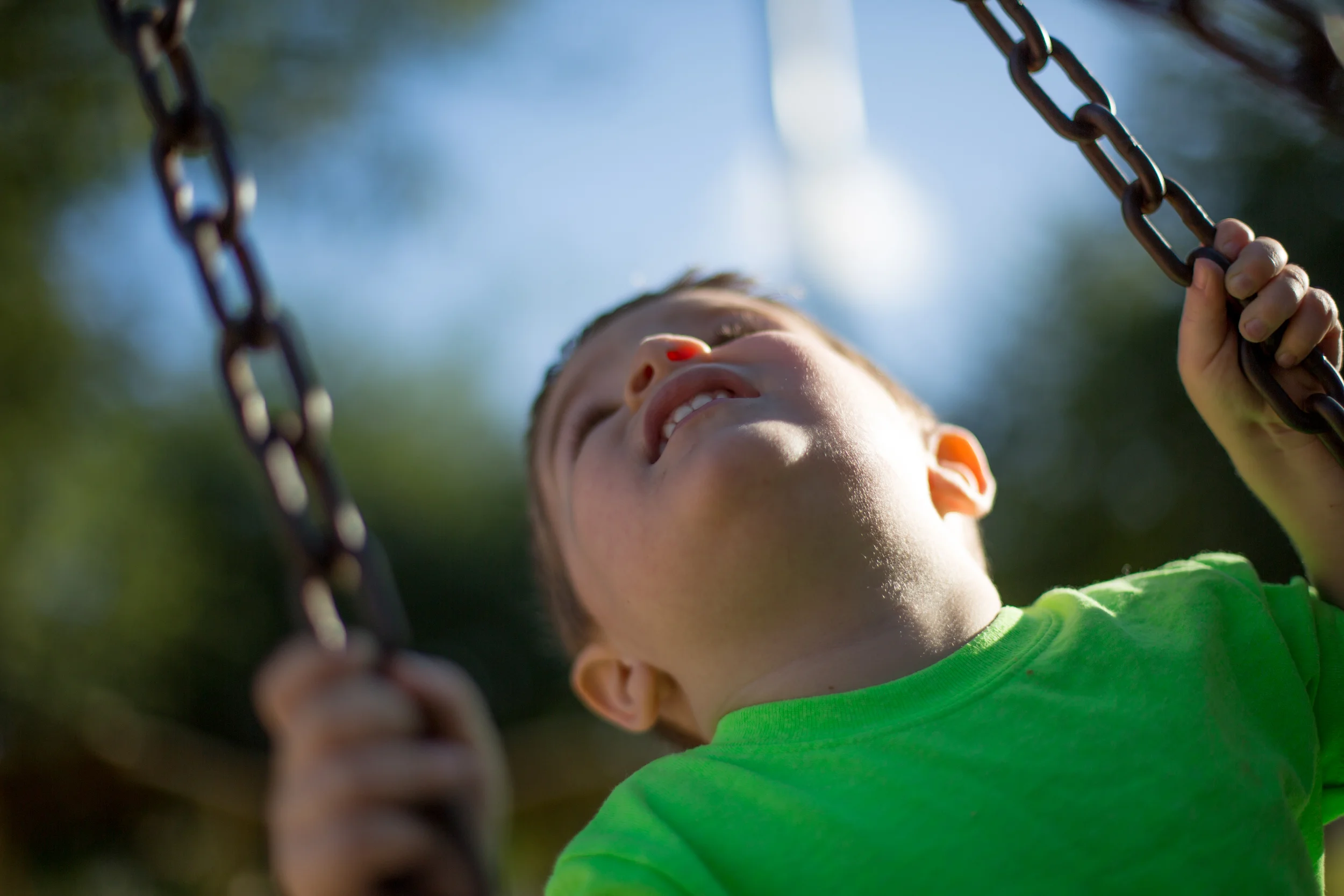
When asked about how his life is affected by PTSD, Josh Quigg replied, “It’s especially hard being around my son at night. That’s when I have really bad anxiety. My son wants to cuddle with me and I can’t. Because I’m afraid. You know, if I wake up from a nightmare and my son is crawling on me, I might do something.”
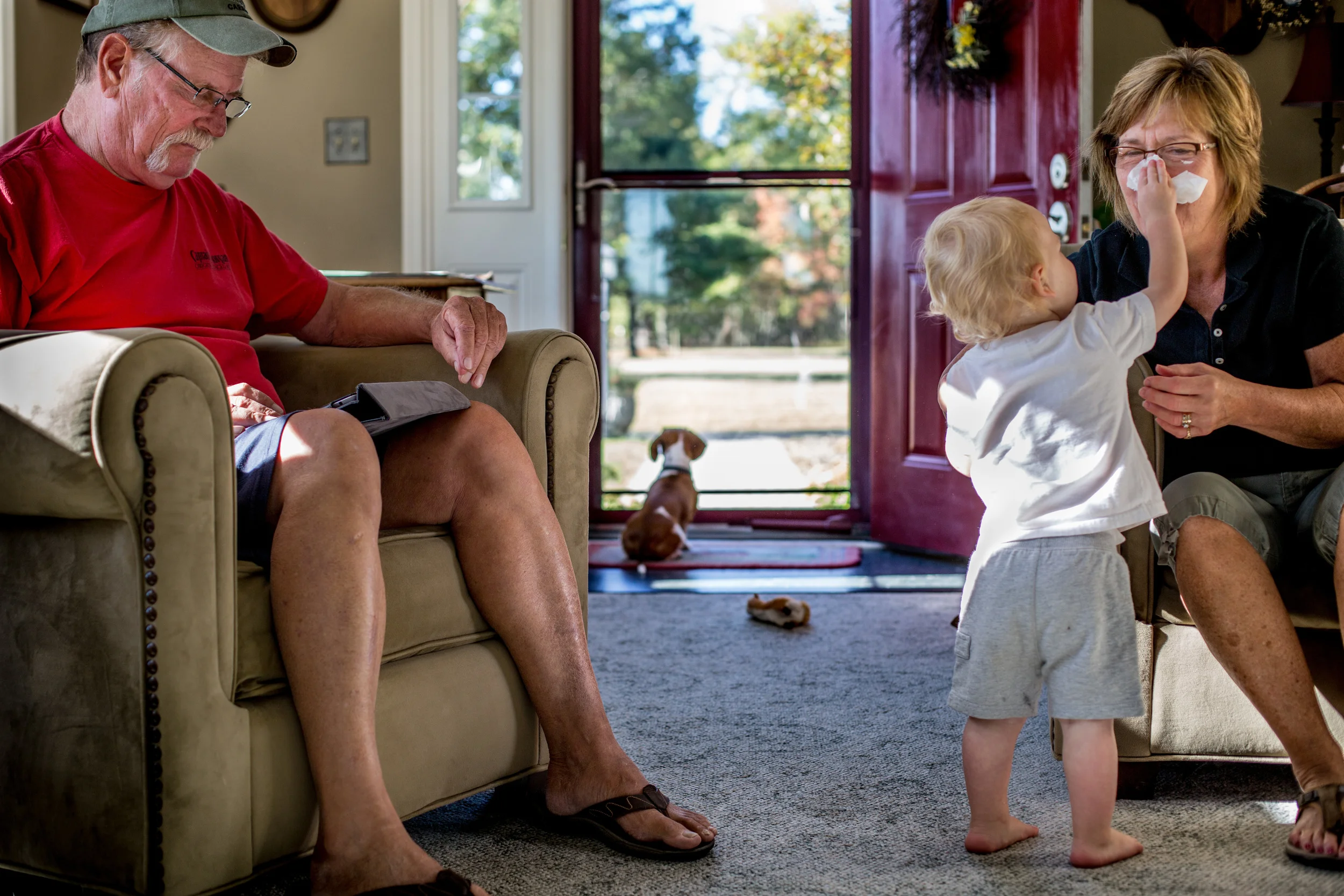
Tom and Chris Frame enjoy a morning with their youngest grandchild, Tommy. It’s the morning time that Tom reflects and remembers all his brothers that died in Vietnam. He calls himself the “fortunate son” for returning home.


Chris Frame explains it was fifteen years before she realized the struggle that Tom had with PTSD. He came home from work crying because he had a flashback while driving a truck for his job. This was the beginning of her understanding why her husband could get so angry and drank to forget.

Tom Frame says it wasn’t until the mid-eighties that ha began healing from his PTSD. That was the time he started Chapter 210 of the Vietnam Veterans of America. He says being surrounded by other veterans was the first time he felt comfortable since returning home from Vietnam.


















